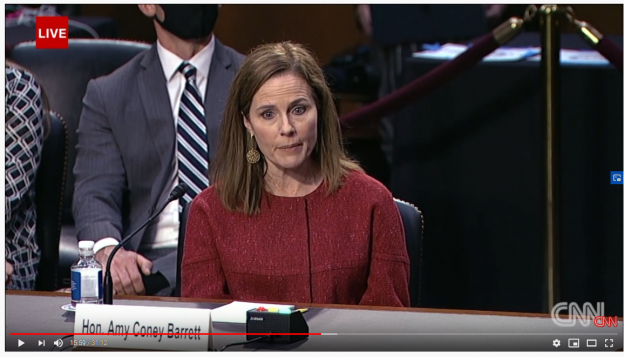NEW COLUMN: “Centralize Liberty: The Solution To Wicked, Woke Tech,” is now on WND.COM, The Unz Review, CNSNews, and The New American.
This column is Part 3 of a 3-part series. Read Part 1, “Big Tech’s Financial Terrorism And Social Excommunication” and Part 2, “Justice Thomas’ Solution to Big Tech’s Social And Financial Excommunication.”
An excerpt:
It is inarguable that by financially crippling and socially segregating, and banishing politically irksome people and enterprises—the Big Tech cartel is flouting the spirit, if not the strict letter, of the Civil Rights Act.
For how do you make a living if your banking options are increasingly curtailed and constantly threatened, and your ability to electronically communicate with clients is likewise circumscribed?
Do you go back to a barter economy (a book for some bread)? Do you go underground? Cultivate home-based industries? Do you keep afloat by word of mouth? Go door-to-door? Return to stamping envelopes? How can you, when your client base is purely electronic?
Telling an individual he can’t open a bank account on account of the beliefs and opinions swirling in his head teeters on informing your innocent victim he might not be able to make a living, as do other, politically more polite Americans, and despite his innocence: Our only “offenses” as dissidents are thought crimes, namely, speaking, or typing or wafting into the air unpopular, impolite words.
“[I]n assessing whether a company exercises substantial market power,” Justice Clarence Thomas has argued, “what matters is whether the alternatives are comparable. For many of today’s digital platforms, nothing is.”
To paraphrase this Supreme Court jurist: Sure, there are alternatives to The Big Tech, but these make a mockery of the outcast. It would hardly be hyperbole, in driving home Justice Thomas’s point about comparability, to put it thus:
With respect to financial de-platforming, barring someone from PayPal is like prohibiting a passenger from crossing the English Channel by high-speed train, via ferry and by means of 90 percent of airplanes. “Have at it sucker.”
By Deep Tech decree, some Americans are worth more than others, based not on their actions, but on the voiced thoughts in their heads. This cannot stand.
The letter of the law needs changing. Do it.
Civil Rights Act
Thus, the preferred remedy to Deep Tech depredations would build upon existing Civil Rights Act jurisprudence.
As a reality-oriented conservative libertarian, I inhabit and theorize in the real world. From the conservative-libertarian’s perspective, Barry Goldwater got it right. Civil Rights law is an ass, for it infringes on property rights. But the onus is on flaccid Republican lawmakers to ensure that that ass can be ridden by all equally (with apologies to adorable, much-abused donkeys for the cruel metaphor).
These are existing laws that are already enforced. I see no reason to reject the application of civil rights solutions to wicked, woke bullies because existing laws that’ll never be repealed go against my core beliefs. What is libertarianism? The art of losing in life because of a slavish devotion to theoretical purity? …
… NEW COLUMN, “Centralize Liberty: The Solution To Wicked, Woke Tech,” can be read now on WND.COM, The Unz Review, CNSNews, and The New American.
UPDATED (10/26/021) I:
UPDATE II (12/21/021) II: “Berenson v. Twitter“:
Twitter is indisputably a messenger service. A longstanding California law regulates messenger services as “common carriers.” This means that they must accept all messages they receive. Twitter thus must accept all tweets it receives. It has no First Amendment rights to refuse them on the basis that it does not agree with them.
A federal law commonly called Section 230 “preempts” the California law, giving Twitter the right to reject tweets or ban users. (Whether that right is universal or whether Twitter must act in “good faith” in restricting service is a separate question; whether Twitter acted in “good faith” in this case is still another question. But put those issues aside for the moment.)
Section 230 is what enables Twitter to claim a First Amendment privilege that supersedes the California law and restrict my own First Amendment right to speak; thus federal courts have the right to review 230 on First Amendment grounds.
MORE.




